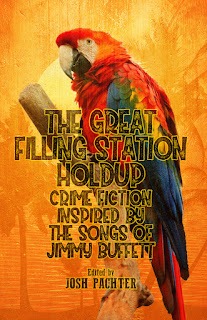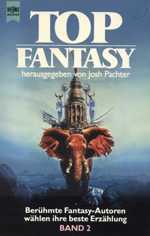We all loved The Wire, the gritty, realistic crime series based in a Baltimore whose underside is all too familiar to anyone living in a city with over 50,000 people. What made it so real was that many of the writing staff and some of the actors were the same cops, criminals, and bystanders who inspired the characters. The show featured not one (rotund Homicide sergeant Jay Landsman), not two (Sgt./Lt. Mello, played by the real-life Jay Landsman), but THREE Landsmans. (Richard Belzer appears in the finale as Baltimore/NYPD Detective Munch from Homicide/Law & Order, a fictionalized version of Landsman in David Simon's book Homicide.)
While the show devoted its third season to the corruption in politics in Baltimore, that thread started in Episode 1 and keeps rolling along in the final season-ending montage.
What if I told you just by watching Fox 19 and WCPO News here in Cincinnati, I've been watching a reboot of The Wire playing out for the past several years?
In a city that had its riots over police shootings in 2001, the most drama coming from that corner in more recent times stemmed from the ouster of Police Chief Jeffrey Blackwell over mismanagement and poor morale among the officers. He was the second of two "outside" chiefs, chiefs hired from outside the police department after a referendum broke the local FOP's hold on promotions to the highest ranks. However, current chief Elliot Isaac is a longtime veteran of the CPD. His approach to last summers protests that followed George Floyd's murder was to announce the curfew at 9 PM, ask everyone to get to their cars by 9:30, and the force would see everyone the next day. That's not to say we don't have our own problems between police and the black community here, but we seem to handle it better than most.
Then we have Cinicnnati City Council. Four members of council have been indicted on corruption charges since 2019. Three of them - PG Sittenfeld, Jeff Pastor, and Tamaya Dennard - were all suspended by the Ohio Attorney General and booted from Council in 2020 and early 2021. A fourth, Wendell Young, found himself in hot water in the past month. Cincinnati City Council has nine members, which means now, nearly half of Council has been appointed by either their party or a judge.
I grew up in Cleveland back when La Cosa Nostra and the Irish mob were a thing there. Granted, Cleveland has a bigger, ward-based council, so what Cincinnati currently calls a crisis in leadership, my old city used to call Tuesday. And yet I'm reminded of the shenanigans that went on in Mayor Royce's office on The Wire, the backroom deals made to move one corrupt police commander after another into the commissioner's office, of Tommy Carcetti selling his soul piece by piece over three seasons until he bore more than a passing resemblance to Aiden GIllen's next major role, that of Littlefinger on Game of Thrones. No wonder Martin O'Malley hates that show. (Though I think O'Malley might have made a decent run for president if he'd learn to stop taking himself so seriously.)
But to have nearly half the people entrusted with running the city indicted on bribery charges? Three of these people had already declared for this year's mayoral campaign. One is still running and insisting his innocence. Not very credible when you realize how tone-deaf that makes one seem. See Weiner, Anthony; Gaetz, Mark.
Throw into the mix a local judge who was accused of mismanagement of her officer, a scandal complete with political intrigue, racial overtones, and a main figure every bit as colorful as the fictional Clay Davis, and Simon and Burns could easily squeeze at least two seasons out of the Queen City.
Is it life imitates art? Or the other way around? Growing up, I knew some older characters claim to be in the bar mobster Danny Green left before he was blown all over Cuyahoga County, a hit that would land anyone involved on Homeland Security's counter-terrorism radar today. I chatted with a former county commissioner at a coffee shop as he dished dirt on a few notables in Cleveland and other local governments. I played little league with a future local police chief who lost his job after a rape conviction. And I've known local politicians who just wanted to do the right thing, including a mayor who was my den mother in Cub Scouts and son is now mayor of the suburb where we grew up. Here in Cincinnati, the mayor of my current suburb used to be my bartender while a coworker sits on another town's council. While there's not much dirt to dish on those four, as characters, they could give a fly-on-wall view of what does go on behind closed doors. Not all of it is pretty, or Cincinnati would have more than five elected council members right now.





































